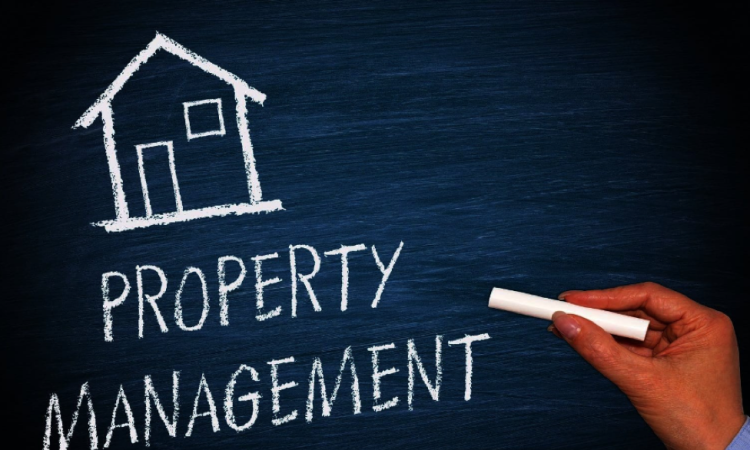Real estate property management plays a pivotal role in the profitability and sustainability of property investments. Effective management not only ensures smooth operations but also enhances Return on Investment (ROI) for property owners. This blog explores key strategies and practices that can streamline operations and maximise ROI in property management.
Understanding the Importance of Real Estate Property Management
Property management involves overseeing residential, commercial, or industrial properties on behalf of owners. It encompasses a range of responsibilities such as tenant relations, property maintenance, rent collection, and financial management. Efficient management ensures that properties are well-maintained, tenants are satisfied, and financial goals are achieved.
Leveraging Technology for Efficient Management
In the modern era, technology plays a crucial role in enhancing efficiency in property management. Property managers can utilise specialised software for tasks such as tenant screening, rent collection, and maintenance scheduling. These tools streamline processes, reduce administrative burden, and improve communication with tenants, ultimately leading to better operational efficiency.
Effective Tenant Screening and Selection Processes
One of the fundamental aspects of successful property management is selecting reliable tenants. Rigorous screening processes, including background checks, credit history analysis, and rental references, help in identifying tenants who are likely to pay rent on time and maintain the property well. This proactive approach minimises risks and contributes to a stable rental income stream.
Proactive Maintenance Strategies to Preserve Property Value
Maintaining properties in good condition is essential for preserving their value and attracting tenants. Implementing proactive maintenance schedules helps in identifying and addressing issues before they escalate into costly repairs. Regular inspections, prompt response to maintenance requests, and partnerships with reliable contractors are integral to effective property maintenance.
Financial Management and Budgeting for Long-term Sustainability
Sound financial management is critical for achieving sustainable ROI in real estate investments. Property managers must develop comprehensive budgets that account for operational expenses, maintenance costs, and potential vacancies. Tracking income and expenses diligently enables managers to make informed decisions and adjust strategies to maximise profitability.
Enhancing Tenant Relations and Satisfaction
Positive tenant relations contribute significantly to the success of property management efforts. Establishing clear communication channels, addressing concerns promptly, and fostering a sense of community can enhance tenant satisfaction and reduce turnover rates. Happy tenants are more likely to renew leases, thereby reducing vacancy periods and increasing overall ROI.
Compliance with Legal and Regulatory Requirements
Navigating the legal landscape of property management is essential to avoid legal disputes and penalties. Property managers must stay updated with local landlord-tenant laws, safety regulations, and housing codes. Compliance ensures that all operational practices adhere to legal requirements, safeguarding both property owners and tenants.
Implementing Sustainable and Eco-friendly Practices
Incorporating sustainable practices not only benefits the environment but also appeals to environmentally conscious tenants. Property managers can introduce energy-efficient upgrades, waste reduction initiatives, and eco-friendly landscaping to reduce operational costs and attract tenants who prioritise sustainability. These initiatives align with global trends towards sustainable living and responsible property management.
Continuous Professional Development for Property Managers
The field of real estate property management is dynamic, with evolving best practices and industry standards. Property managers should invest in continuous professional development to stay updated with emerging trends, technological advancements, and regulatory changes. Engaging in training programmes, attending industry conferences, and networking with peers fosters growth and enhances managerial capabilities.
Embracing Innovation in Property Management
Innovation plays a crucial role in the evolution of property management practices. Embracing technological advancements such as smart home systems, digital marketing platforms, and virtual tours can revolutionise how properties are marketed, managed, and maintained. These innovations not only enhance efficiency but also elevate the tenant experience, attracting tech-savvy renters who value convenience and modern amenities. Property managers who integrate these technologies effectively gain a competitive edge in the market and position their properties as desirable choices for prospective tenants.
Mitigating Risks and Contingency Planning
Effective risk management is essential in real estate property management to mitigate potential risks and uncertainties. Property managers should develop comprehensive contingency plans that address scenarios such as economic downturns, natural disasters, or tenant emergencies. Maintaining adequate insurance coverage, establishing emergency protocols, and maintaining financial reserves are critical components of risk mitigation strategies. By proactively preparing for unforeseen events, property managers can safeguard property assets and minimise disruptions to operations, ensuring continued profitability and investor confidence.
Adapting to Market Trends and Tenant Demands
The real estate market is constantly evolving, influenced by economic trends, demographic shifts, and changing consumer preferences. Property managers must stay attuned to market dynamics and tenant demands to remain competitive. Monitoring rental trends, conducting market research, and adapting property amenities to align with current market preferences enable managers to attract and retain tenants effectively. By responding swiftly to market changes and anticipating future trends, property managers can optimise occupancy rates, rental income, and overall ROI for property owners.
Conclusion
In conclusion, effective real estate property management involves a multifaceted approach that focuses on streamlining operations and boosting ROI. By leveraging technology, implementing proactive maintenance strategies, fostering tenant relations, and adhering to legal requirements, property managers can enhance property value, minimise risks, and achieve sustainable financial returns for property owners. Embracing these practices not only optimises operational efficiency but also positions properties for long-term success in the competitive real estate market.

